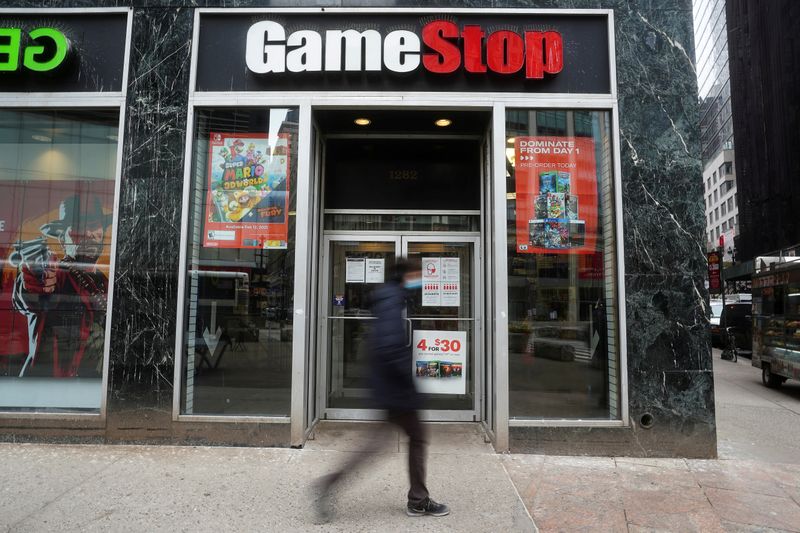A tulip by another name? ‘Gamestonk’ and the case for investor
By David Randall
NEW YORK (Reuters) – It sounds like the start of a parable: Investors stuck inside during a pandemic begin to bid up an asset until its price becomes untethered to reality. The value soars until one day the market runs out of buyers and freezes, causing prices to plummet and some unlucky few to lose fortunes more than ten times their annual incomes in the span of a few hours.
The date: February 3, 1636. On that day, the infamous Dutch tulip bubble burst during an outbreak of the bubonic plague, illustrating that asset prices can plummet just as quickly as they soar, leaving only pain behind.
Now, almost exactly 385 years and another pandemic later, Wall Street waits to see how long it will take for history to repeat itself.
Shares of video game retailer GameStop Corp (NYSE:) have soared 1,625% since the start of January. Driving the rally are individual investors who have been stuck at home for the last ten months. Many have turned to online forums like WallStreetBets on Reddit and are buying the stock, some as a form of protest against hedge fund managers who wagered that it would fall.
These amateur investors are buoyed by savings built up over the coronavirus pandemic, two rounds of stimulus payments and near zero interest rates. Some, such as billionaire entrepreneur Elon Musk, have referred to the phenomenon as ‘Gamestonk’, a play on the intentional misspelling of the word ‘stock’ on social media.
The stock price rally to above $300 per share has emboldened some small investors to pour even more money into a company that Wall Street analysts tracked by Refinitiv believe is worth slightly more than $13 per share. The surge increases the risk that individuals will get caught up in the euphoria and look past the warning signs and consequences of an eventual crash.
“I dumped my savings into GME, paid my rent for this month with my credit card, and dumped my rent money into more GME (which for the people here at WSB, I would not recommend),” a Reddit user with the handle ssauron https://www.reddit.com/r/wallstreetbets/comments/l6omry/an_open_letter_to_melvin_capital_cnbc_boomers_and wrote Thursday on WallStreetBets. “And I’m holding. This is personal for me, and millions of others.”
A form of class warfare waged through the shares of a video game retailer is notably different than financial market manias, such as the dotcom bubble in 2000 or the U.S. real estate bubble that culminated in the 2008 financial crisis, both which were fueled by assumptions of broad economic growth.
Yet for those who buy GameStop at the wrong time, the results will likely be the same.
“The reality is that GameStop doesn’t hurt Wall Street. It might hurt a couple of hedge fund managers out there, but no one is going to cry for them. The people who will be losing their life savings are small retail…
Read More: A tulip by another name? ‘Gamestonk’ and the case for investor

